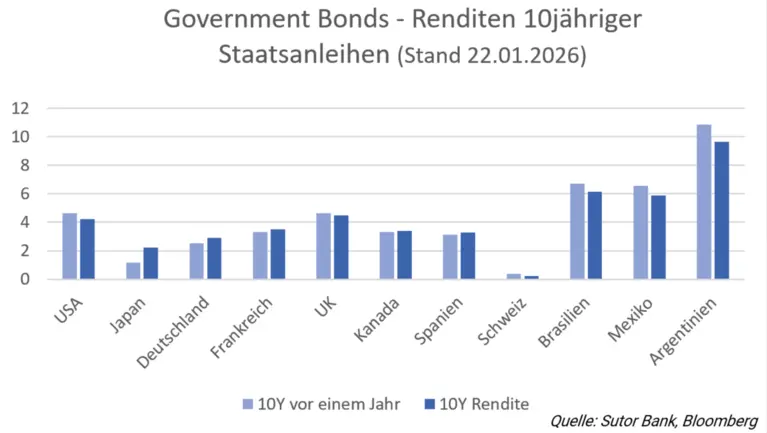For months or years, share indices have been driven by the strength of tech stocks. Record highs without the pulling power of the big techs? Not a chance. ‘But Apple's figures show a trend that could accelerate in the coming months,’ says Mathias Beil, Head of Private Banking at Hamburg-based Sutor Bank. ‘The previous consensus will dissolve, users will differentiate themselves from developers - and only one group will perform.’
The ‘Magnificent Seven’ have been celebrated for months because they drove the stock markets from one high to the next. And actually offered stability even during downturns. ‘Big tech is at home in the USA: Alphabet, Amazon, Apple, Meta, Microsoft, Nvidia and Tesla are the winners, the drivers, the stock market heroes,’ says Beil. Glorious, because they seem to be striving inexorably upwards, increasing turnover and profits, changing the world with their products and visions.
The combined stock market value of these companies has risen to more than 13.5 trillion US dollars in recent months. ‘That's more than the entire Chinese stock market is currently worth,’ says Beil. ‘All the hopes and wishes of investors are concentrated here; they are betting on the new, which should please replace the old world - and earn a lot of money in the process.’
Not a monolithic block of big tech
However, the past few weeks have shown that companies are different. ‘There is no monolithic block of big tech,’ says Beil. ‘They have very different business models and some of the Magnificent Seven are experiencing market saturation.’ Apple's figures show this, as the company had to accept a decline in sales. This also affected Tesla before. ‘While Apple had managed expectations well and the figures were not as bad as generally expected, Tesla's share price took a nasty knock,’ says Beil.
And even if this was certainly partly due to short sellers who had either hedged their holdings with options or speculated against the shares, it does highlight a trend. Apple, Tesla, Amazon and Meta are the shaky candidates among the Magnificent Seven. ‘Some are developers and pioneers, others are beneficiaries of the technology and use it in their products,’ says Beil. ‘And even if the boundaries cannot be drawn very clearly, there is a line that will determine performance.’ Companies such as Nvidia, Alphabet and perhaps also Microsoft are currently more likely to be seen as developers whose story is far from over. ‘The others have reached market saturation and can no longer grow significantly without new innovations,’ says Beil.
In the western ‘The Magnificent Seven’, only three of the seven survived. ‘This is not intended to show a parallel, but it is an indication that things can change,’ says Beil. ‘Maybe we'll see a new line-up of the Magnificent Seven in twelve or 18 months' time - or the Magnificent Seven will shrink to just three.’





